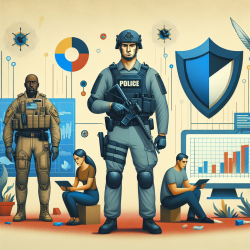During the Second World War, the neuroses of battle provided a significant impetus for the development and acceptance of psychotherapy. The research article "War and the Practice of Psychotherapy: The UK Experience 1939–1960" by Edgar Jones, PhD, offers valuable insights into how these historical developments can inform modern speech therapy practices, particularly for children.
The wartime necessity to treat psychological disorders quickly and effectively led to the adoption of several innovative therapeutic techniques. Here are some key takeaways from the research that can be applied to modern speech therapy:
- Group Therapy as a Tool for Social Skills Development:
- The use of group therapy during WWII, particularly at Northfield Military Hospital, demonstrated the effectiveness of communal problem-solving. Group settings encouraged soldiers to develop self-respect and personal responsibility.
- For speech therapy, group sessions can help children develop social skills, improve their communication abilities, and foster a sense of community. These sessions can be particularly beneficial for children with social communication disorders.
- Occupational and Art Therapies:
- WWII saw the advancement of occupational and art therapies in military psychiatric hospitals. These therapies provided soldiers with creative outlets to express their emotions and cope with stress.
- Incorporating occupational and art therapies into speech therapy can help children express themselves in non-verbal ways, which can be particularly useful for those with severe speech impairments. Activities like drawing, painting, or playing with clay can complement traditional speech exercises.
- Brief, Focused Interventions:
- The concept of "forward psychiatry" or PIE (Proximity, Immediacy, and Expectancy) was used effectively during the war to treat battle exhaustion. This approach emphasized the importance of immediate and focused intervention.
- In speech therapy, brief and focused interventions can be crucial, especially in online settings. Targeted exercises that address specific speech issues can lead to quicker and more effective outcomes.
- Data-Driven Decisions:
- Wartime psychotherapy efforts were often accompanied by rigorous data collection and analysis, albeit with some limitations. This data-driven approach helped in refining therapeutic techniques.
- Modern speech therapists should leverage data to track progress, identify patterns, and adjust treatment plans accordingly. Tools like progress tracking software and regular assessments can provide valuable insights into a child's development.
- Therapeutic Communities:
- The concept of therapeutic communities, as developed during the war, emphasized the importance of a supportive environment for recovery.
- Creating a supportive and inclusive community for children undergoing speech therapy can enhance their motivation and engagement. This can be achieved through parent involvement, peer support groups, and community activities.
Encouraging Further Research:
The historical insights from WWII provide a robust foundation for enhancing modern therapeutic practices. However, continuous research is essential to adapt these practices to contemporary needs. Speech therapists should stay informed about the latest research and be open to integrating new methodologies into their practice.
To read the original research paper, please follow this link: War and the Practice of Psychotherapy: The UK Experience 1939–1960










